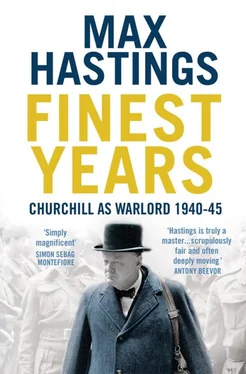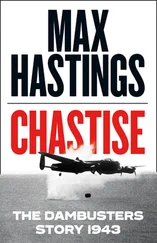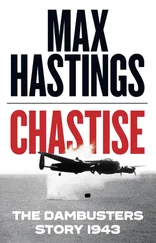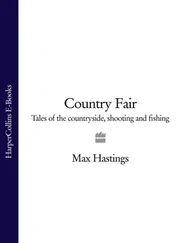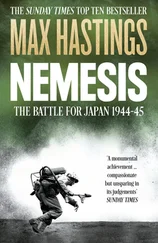These observations, made in the heat of events, deserve respect from every historian of the period. Another banal and yet critical point is that circumstances and attitudes shifted. The prime minister often changed his mind, and deserves more credit than he sometimes receives for his willingness to do so. Meanwhile, others vacillated in their views of him. Some who revered Churchill in the first months of his premiership later became bitterly sceptical, and vice versa. After Dunkirk, Britain’s middle classes were considerably more staunch than some members of its traditional ruling caste, partly because they knew less about the full horror of the country’s predicament. History perceives as pivotal Britain’s survival through 1940, so that the weariness and cynicism that pervaded the country by 1942, amid continuing defeats, are often underrated. Industrial unrest, manifested in strikes especially in the coalfields, and in the aircraft and shipbuilding industries, revealed fissures in the fabric of national unity which are surprisingly seldom acknowledged.
This book does not seek to retell the full story of Churchill at war, but rather to present a portrait of his leadership from the day on which he became prime minister, 10 May 1940, set in the context of Britain’s national experience. It is weighted towards the first half of the conflict, partly because Churchill’s contribution was then much greater than it became later, and partly because I have sought to emphasise issues and events about which there seem new things to be said. There is relatively little in this book about the strategic air offensive. I addressed this earlier in Bomber Command and Armageddon . I have here confined myself to discussion of the prime minister’s personal role in key bombing decisions. I have not described land and naval campaigns in detail, but instead considered the institutional cultures which influenced the performance of the British Army, Royal Navy and RAF, and the three services’ relationships with the prime minister.
To maintain coherence, it is necessary to address some themes and episodes which are familiar, though specific aspects deserve reconsideration. There was, for instance, what I have called the second Dunkirk, no less miraculous than the first. Churchill’s biggest misjudgement of 1940 was his decision to send more troops to France in June after the rescue of the BEF from the beaches. Only the stubborn insistence of their commander, Lt.Gen. Sir Alan Brooke, made it possible to overcome the rash impulses of the prime minister and evacuate almost 200,000 men who would otherwise have been lost.
The narrative examines some subordinate issues and events in which the prime minister’s role was crucial, such as the strategic contribution of SOE—as distinct from romantic tales of its agents’ derring-do—the Dodecanese campaign and Churchill’s Athens adventure in December 1944. I have attempted little original research in his own papers. Instead, I have explored the impression he made upon others—generals, soldiers, citizens, Americans and Russians. Moscow’s closure of key archives to foreign researchers has curtailed the wonderful bonanza of the post-Cold War period. But much important material was published in Russian documentary collections.
It seems mistaken to stint on quotation from Alan Brooke, John Colville and Charles Wilson (Lord Moran), merely because their records have been long in the public domain. Recent research on Moran’s manuscript suggests that, rather than being a true contemporary record, much of it was written up afterwards. Yet most of his anecdotes and observations appear credible. The diaries of Churchill’s military chief, junior private secretary and doctor provide, for all their various limitations, the most intimate testimony we shall ever have about Churchill’s wartime existence.
He himself, of course, bestrides the tale in all his joyous splendour. Even at the blackest periods, when his spirits sagged, flashes of exuberance broke through, which cheered his colleagues and contemporaries, but caused some people to recoil from him. They were dismayed, even disgusted, that he so conspicuously thrilled to his own part in the greatest conflict in human history. ‘Why do we regard history as of the past and forget we are making it?’ he exulted to Australian prime minister Robert Menzies in 1941. It was this glee which caused such a man as the aesthete and diarist James Lees-Milne to write fastidiously after it was all over: ‘Churchill so evidently enjoyed the war that I could never like him. I merely acknowledge him, like Genghis Khan, to have been great.’
Lees-Milne and like-minded critics missed an important aspect of Churchill’s attitude to conflict in general, and to the Second World War in particular. He thrilled to the cannon’s roar, and rejoiced in its proximity to himself. Yet never for a moment did he lose his sense of dismay about the death and destruction that war visited upon the innocent. ‘Ah, horrible war, amazing medley of the glorious and the squalid, the pitiful and the sublime,’ he wrote as a correspondent in South Africa in January 1900. ‘If modern men of light and leading saw your face closer simple folk would see it hardly ever.’ Hitler was indifferent to the sufferings his policies imposed upon mankind. Churchill never flinched from the necessity to pay in blood for the defeat of Nazi tyranny. But his sole purpose was to enable the guns to be silenced, the peoples of the world restored to their peaceful lives.
Appetite for the fray was among Churchill’s most convincing credentials for national leadership in May 1940. Neville Chamberlain had many weaknesses as prime minister, but foremost among them was a revulsion from the conflict to which his country was committed, shared by many members of his government. One of them, Rob Bernays, said: ‘I wish I were twenty. I cannot bear this responsibility.’ A nation which found itself committed to a life-and-death struggle against one of the most ruthless tyrannies in history was surely wise to entrust its leadership to a man eager to embrace the role, rather than one who shrank from it. This book discusses Churchill’s follies and misjudgements, which were many and various. But these are as pimples upon the mountain of his achievement. It is sometimes said that the British and American peoples are still today, in the twenty-first century, indecently obsessed with the Second World War. The reason is not far to seek. We know that here was something which our parents and grandparents did well, in a noble cause that will forever be identified with the person of Winston Churchill, warlord extraordinary.
Max Hastings
Chilton Foliat, Berkshire
May 2009
For seven months after the Second World War began in September 1939, many British people deluded themselves that it might gutter out before there was a bloodbath in the West. On 5 April 1940, while the armed but passive confrontation which had persisted since the fall of Poland still prevailed on the Franco-German border, prime minister Neville Chamberlain told a Conservative Party meeting: ‘Hitler has missed the bus.’ Less than five weeks later, however, on 7 May, he addressed the House of Commons to explain the disastrous outcome of Britain’s campaign to frustrate the German occupation of Norway. Beginning with a tribute to British troops who had ‘carried out their task with magnificent gallantry’, in halting tones he continued:
I hope that we shall not exaggerate the extent or the importance of the check we have received. The withdrawal from southern Norway is not comparable to the withdrawal from Gallipoli…There were no large forces involved. Not much more than a single division…Still, I am quite aware…that some discouragement has been caused to our friends, and that our enemies are crowing…I want to ask hon. Members not to form any hasty opinions on the result of the Norwegian campaign so far as it has gone…A minister who shows any sign of confidence is always called complacent. If he fails to do so, he is labelled defeatist. For my part I try to steer a middle course—[Interruption]—neither raising undue expectations [Hon. Members: ‘Hitler missed the bus’] which are unlikely to be fulfilled, nor making people’s flesh creep by painting pictures of unmitigated gloom. A great many times some hon. Members have repeated the phrase ‘Hitler missed the bus’—[Hon. Members: ‘You said it’]…While I retain my complete confidence on our ultimate victory, I do not think that the people of this country yet realise the extent or the imminence of the threat which is impending against us [An Hon. Member: ‘We said that five years ago’].
Читать дальше
